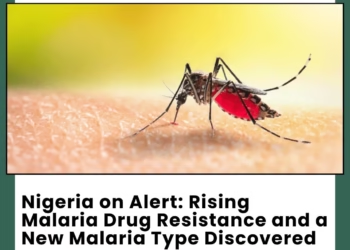Fellow Nurses Africa | Lagos, Nigeria | 01 September 2025

The Silent Surge: COVID’s Global Resurgence Demands Renewed Vigilance
Five years after the world first grappled with an unknown virus, COVID-19 has returned with a quiet intensity that should concern health officials and citizens alike. The numbers tell a sobering story: global test positivity rates have climbed to 11% across 73 reporting countries, levels not witnessed since July 2024.
The World Health Organization has documented a troubling upward trajectory since mid-February, with rising SARS-CoV-2 activity spanning multiple continents. From the Americas to the Western Pacific, no region appears immune to this latest wave. In just four weeks during July and August, 37 countries reported over 7,800 new COVID hospitalizations, while ICU admissions mounted across four WHO regions.
What makes this surge particularly concerning is its stealth-like progression. Unlike the dramatic peaks of 2020 and 2021, this wave moves quietly through communities, often dismissed as seasonal flu or common cold. The emergence of variants like XFG, now comprising nearly 23% of global sequences and detected in 38 countries, demonstrates the virus’s continued evolution and adaptability.
Healthcare systems that thought they had turned the corner are once again feeling pressure. Hospital administrators who had reassigned COVID wards are quietly reopening dedicated units. Emergency departments report longer wait times as respiratory cases multiply. Yet public awareness remains concerningly low.
The implications extend beyond immediate health threats. Long COVID continues to affect millions worldwide, turning brief infections into months or years of debilitating symptoms. Each new case represents not just a potential hospitalization, but a possible life altered by persistent fatigue, brain fog, or organ damage.
The tools for protection remain unchanged and effective: vaccination with updated formulations, mask-wearing in crowded indoor spaces, improved ventilation, and staying home when symptomatic. Testing remains crucial for early detection and preventing transmission chains.
Perhaps most critically, this surge serves as a reminder that pandemics don’t end with a declaration – they fade gradually, requiring sustained vigilance from individuals, communities, and governments. The virus that upended the world remains active, adaptive, and dangerous to those who let their guard down.
As global mobility returns to pre-pandemic levels and mask mandates become memories, COVID-19 proves it needs neither fanfare nor headlines to spread effectively. The question facing the world now is whether we’ve learned enough from the past five years to respond decisively to this quieter, but no less serious, threat.
The pandemic may feel over. The virus clearly disagrees.
What measures do you think individuals and countries can put in place to halt this silent spread? Drop your opinions in the comments.
Fellow Nurses Africa is the independent voice of African nurses. We educate, inform and support the nursing profession.










